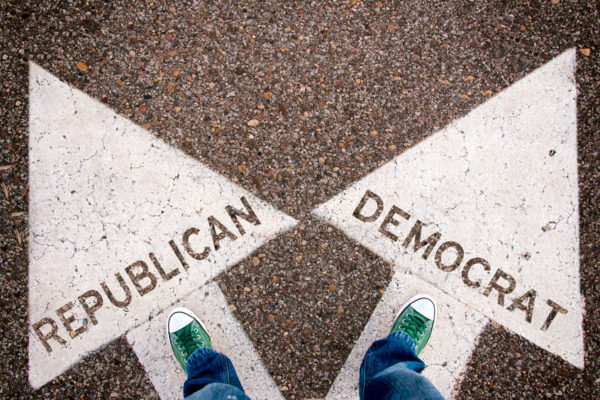In 2003, I interviewed Karl Rove in the White House. At the height of his powers as George W. Bush’s political guru, he consented to what was his first filmed interview because the subject was not President Bush, but how he helped make the Republican Party dominant in Texas.
He described the GOP ascent, running candidates who articulated a message that appealed to the state’s conservative tilt. But he acknowledged that Democrats might have a hope someday if they were able to identify races where a good candidate with a strong and powerful message might get elected, “perhaps by accident, perhaps as an upset, perhaps looking for opportunities that might not be easily seen.”
Two decades later, as unlikely as it might seem, 2022 may be that time.
When the Supreme Court declined to halt Texas’ new abortion legislation, on top of a new voter restriction law, our state became the epicenter of national attention. This came as a result of Republicans in the Legislature, emboldened by their wins in 2020, passing perhaps the most ideologically right wing set of bills in the history of the state.
In the face of this, what can Democrats in Texas do? Donors were demoralized after the expectations that Democrats would build on their 2018 gains were totally dashed this past year. Partisan gerrymandering won’t help either. But even with Democrats, fearful of COVID-19, abandoning door-to-door contacts, flipping just over 10,000 votes statewide would have given them control of the state House. Joe Biden came just 6% short against Donald Trump, the Democrats’ best result in more than two decades.
So how can Democrats win in 2022? Look at the issues and how next year’s political messaging might work.
Texans froze and died when the state’s energy grid failed in February, but despite promises, the Republican Legislature did virtually nothing.
After the murder of 23 innocent victims in an El Paso Walmart, the Republican Legislature’s response was to allow anyone to buy and display handguns without a permit.
After a state election that the GOP won — an election that saw increased voter participation and no evidence of voter fraud — sweeping measures that will decrease minority turnout were passed. Partisan poll watchers were also empowered to harass poll workers doing their jobs.
Conservatives used to believe in local control whenever possible. Now the desperate attempts of local school boards and city governments to protect children in public education, with mask mandates in schools, have been overruled by a defiant governor and the state’s attorney general.
And we now have the Texas GOP allocating about $1 billion to keep building a Rio Grande border wall that is an environmental disaster and does virtually nothing, along with legislation that empowers neighbors and strangers to sue anyone abetting abortions after six weeks of pregnancy, with a bounty as their reward.
Gradually, what the state Republicans have done this year is sinking in. The latest UT Texas Policy Project poll showed that 52% of Texans think the state is headed in the wrong direction, the worst recorded percentage since 2008. Gov. Greg Abbott’s disapproval ratings have risen to 50%.
The issues are there for Democratic candidates who are skillful enough to use them. But in a country and a state suffering from two viruses, the coronavirus and political polarization, both of which are killing us, perhaps this is also the moment for a message that transcends pure politics.
Can a message of working together, not hating those you disagree with, cut through in Texas? A message of acknowledging and pledging to try and cure the sickness of division? Can we do better than pit Texan against Texan for ideological and partisan gain?
This message, on top of a reaction to the divisive actions taken by our state’s elected leaders, just might resonate. Delivered by candidates capable of gaining the attention of Texans. It’s a message that just might win.
Paul Stekler is a documentary filmmaker and the Wofford Denius Chair in Entertainment Studies in the Moody College of Communication at The University of Texas at Austin.
A version of this op-ed appeared in the Austin American-Statesman, San Antonio Express News, Waco Tribune Herald and the Bryon Eagle.




